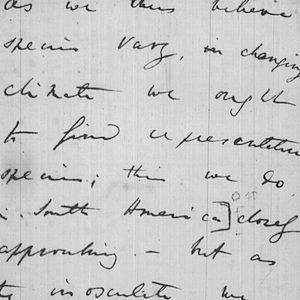-
-
Step-by-step course guide
-
What you will learn in this course
-
About the course: David Kinney & Simon DeDeo
-
Introducing the course Teaching Assistant
-
Join the discussion
-
-
-
Introduction to Humanities Analytics
-
-
-
-
Analyzing "Excellence" in the Humanities
-
-
-
-
-
-
Case Study: Capitalism & Democracy
-
Chapter 5 part 1 Overview
-
The Marriage of Capitalism & Democracy part 1
-
Test Your Knowledge part 1
-
Test Your Knowledge part 1: Explanations
-
Chapter 5 part 2 Overview
-
The Marriage of Capitalism & Democracy part 2
-
Test Your Knowledge part 2
-
Test Your Knowledge part 2: Explanations
-
Assignment: Case Study: Capitalism & Democracy
-
-
-
-
-
Measurement & Operationalization
-
-
-
A Philosophical Approach to Probability
-
-
-
Guest Lecture: Marco Buongiorno Nardelli
-
-
-
-
-
Guest Lecture: Nan Z. Da
-
-
-
Wrap-Up
-
What's Next
-
9.1 Guest Lecture: Julia Lefkowitz » Lecture Overview
The goal of this guest lecture
As with all guest lectures, the aim is to inspire you by providing exemplars of Humanities Analytics projects. You will learn how, in practice, it is possible to analyze newspaper archives in order to track how the journalistic values expressed by various newspapers have changed over time. Specifically, Julia Lefkowitz describes how she was able to construct a novel corpus of newspaper articles published in the United Kingdom between 1968 and 2016, and how she devised novel measures of journalistic values associated with both tabloid and quality journalism. This allowed her to track the extent to which four UK newspapers tended towards tabloid versus quality values over the time period in her study, with a specific focus on changes that occurred alongside the rise of the internet.
Key terms to keep in mind
Tabloid A newspaper having pages half the size of those of a standard newspaper, typically aimed at broad audience and dominated by headlines, photographs, and sensational stories (in Lefkowitz's corpus of UK newspapers, examples include The Sun and The Daily Mirror).
Quality newspaper A newspaper with full-size pages and (typically) fewer pictures and less sensational headlines, with more coverage of politics, economics, and "high culture" than celebrity gossip or mass culture. Typically aimed at a more intellectual readership (in Lefkowitz's corpus of UK newspapers, examples include The Times of London and The Guardian).
Sensationalism The journalistic deployment of content and language that aims to provoke sensory and emotional reactions from readers as a result of emphasis placed on drama, magnitude, salaciousness, and/or the unexpected. In Lefkowitz's study, sensationalism is taken to be a signal of journalist values associated with tabloids, and is indicated by a relatively high frequency of adverbs, adjectives, and amplifiers.
Personalization A journalistic focus on an individual or entity representative of a larger theme or topic, whereby emphasis on the personal and/or emotional often supersedes the emphasis on fact or public affairs-oriented information. In Lefkowitz's study, personalization is taken to be a signal of journalist values associated with tabloids, and is indicated by a relatively high frequency of first person pronouns, second person pronouns, and private verbs.
Information-orientation A broad term used in Lefkowitz's study to summarize the multiple values that are depicted as traditionally characteristic of quality UK newspapers. In Lefkowitz's study, this is indicated by a relatively high average sentence length, average word length, and average article length, as well as a relatively high degree of reading difficulty.
